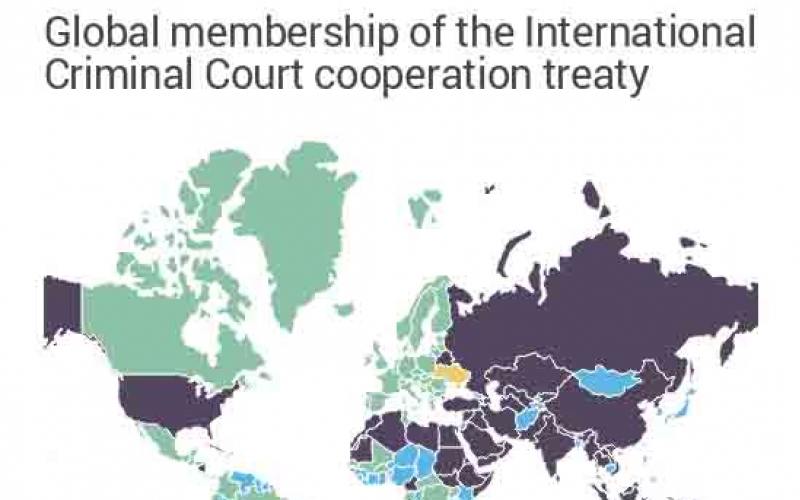States: Ratify international justice cooperation treaty

States can begin by pledging support for ICC cooperation and access treaty
Upon Belgium’s initiative at the 2014 ASP session, states agreed to hold an APIC pledging ceremony at the ASP session in 2016. The Coalition for the ICC invites states to join the initiative and pledge to ratify the APIC by 2018, the 20th anniversary of the Rome Statute, the ICC’s founding treaty.
“The Coalition is calling on states to initiate the process of APIC ratification so that they can announce their ratification, or at the very least their pledge to do so, at the 2016 ASP session,” said Kirsten Meersschaert, director of programs at the Coalition for the ICC. “The Agreement can also be ratified by non-ICC members, as shown by the precedent of Ukraine in 2007.”
CALL ON GOVERNMENTS TO RATIFY THE APIC NOW.
Ratifications needed
Universal ratification and implementation of the APIC is necessary for the effective functioning of the Court and the international justice system as a whole, as it provides the ICC with the access and cooperation it requires to execute its mandate to provide justice for victims of genocide, crimes against humanity, and war crimes.
The Agreement gives ICC officials and staff, defense counsel, and state representatives certain privileges and immunities necessary for them to independently and unconditionally perform their duties. It complements cooperation provisions in Article 48 of the ICC’s founding treaty, the Rome Statute.
As with any judicial institution, those individuals who are parties or participants in ICC proceeding are accorded certain rights and protections, which, among other functions, preserve the confidentiality of materials and identities; help maintain proper chains of custody and thus admissibility of evidence; and uphold the ability to pursue justice through the rule of law.
To date, only 75 states have ratified the APIC, leaving 49 ICC members in a potential legal vacuum when it comes to having the necessary framework to effectively cooperate with the Court. As the APIC is also open to ratification by non-ICC members such states can demonstrate a commitment to international justice by joining the APIC, even without having ratified the Rome Statute.
In a letter sent this week to those heads of state and government of the 120 UN member states that have yet to ratify or accede to this critical treaty, the Coalition urged states to join the 75 countries that have already become party to the APIC.
“The APIC is crucial for the ICC system of international justice to work effectively,” added Meersschaert. “Only by ratifying and implementing the Agreement can states guarantee their officials are aware of the actual scope and realities of these privileges and immunities and how to apply them in concrete situations.”
Ratifying the APIC remains an important priority in strengthening the ICC. With preliminary examinations, investigations, or cases ongoing in 19 situations, it is now more crucial than ever that the Court is able to rely on states to respect immunities and privileges as foreseen in the core ICC documents: the Rome Statute and the Agreement on Privileges and Immunities of the Court.
In practice: how enhanced cooperation and access can help the ICC
The ICC Office of the Prosecutor (OTP) has highlighted the value of visiting the countries in question to be able to assess the admissibility of such cases before the ICC. However, sometimes such access has been frustrated by the lack of guarantees of privileges and immunities of Court personnel.
Ratifying the APIC can help states parties in particular uphold their obligations, for example by facilitating ICC officials’ and investigators’ access to key government and judicial officers as well as evidence. Any country with an interest and opportunity to facilitate the Court’s delivery of justice and reparations for victims in situations of alleged grave international crimes should ensure it is able to do so by ratifying this important international justice cooperation and access treaty.
